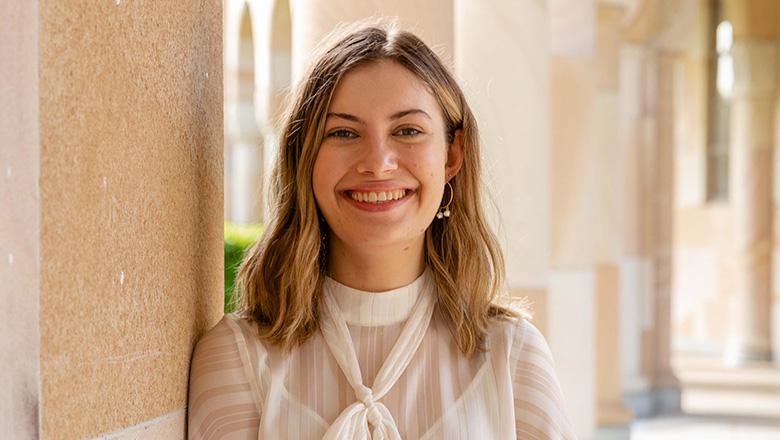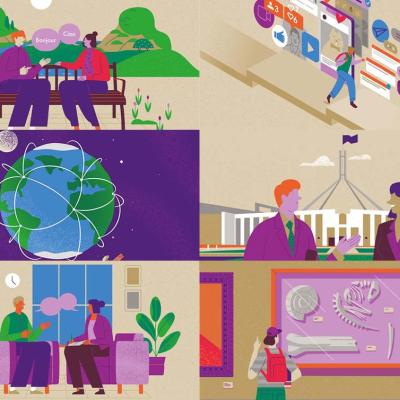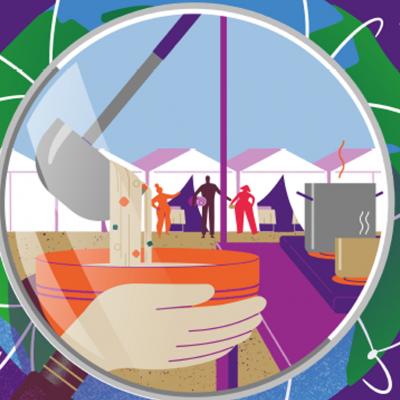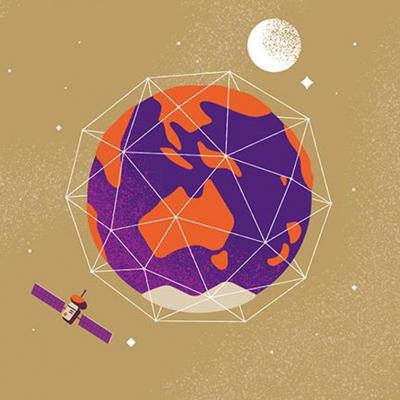Thinking about studying the International Relations major? Not sure what this area of study involves? Let’s explore.
International Relations is a major that comfortably checks both the crucial boxes for Bachelor of Arts students:
- It’s genuinely interesting to study at uni.
- It prepares you for a real career after you graduate.
But what is this major all about? And what kind of international relations careers could be waiting for you once you’ve got your degree?
We asked Dr Andrew Phillips and Jacinta O’Hagan, two Associate Professors from the UQ School of Political Science and International Studies, for some insight into what you get when you study international relations as part of your Bachelor of Arts.
Is International Relations a good major?
Need a major that inspires you now? Or a major that equips you for a great job in the future? Andrew believes International Relations is a great choice either way.
“International Relations combines both fascinating content and exciting vocational opportunities,” he says.
“The major is fundamentally concerned with questions of power in world politics – who has it, what they do with it, how they use it, and for what purposes.”
“If you are interested in understanding power and using it to achieve positive change – whether locally, national or globally – International Relations is the major for you.”
By studying International Relations, you'll consider the most pressing questions we face today. You'll get to approach global issues that range all the way across:
- questions of war, peace and power dynamics on the world stage
- causes and possible remedies for global poverty, food insecurity, gender inequality and injustice
- the ways we react to and recover from pandemics and other global crises
- the challenges of managing the global economy and combating climate change.
Jacinta believes the scope of issues and challenges that the International Relations major covers is much broader than some people realise. But it’s not just about discussing these global problems in theory. It’s about planning practical steps you can take to make a positive impact.
“The major helps students understand what those challenges are but also the mechanisms we have to manage and respond to them – such as international institutions and diplomacy,” says Jacinta.
Skills you get from studying international relations
Andrew says International Relations students learn to appreciate the power dynamics of the world. They also explore the challenges and obstacles the people with this power face each day.
“Our diverse courses enable students to engage with key puzzles in global politics, ranging across questions of war and peace, international political economy, ethics and more,” he says.
“International Relations also enables students to strengthen their critical-thinking skills and to engage in activities (such as simulated war-games) that will help them to gain an appreciation of the dilemmas that real-world decision-makers confront on a day-to-day basis.”
Jacinta adds that many of the skills taught in the International Relations major are universal. This means you'll have relevant abilities for any profession you find yourself in.
“Our students develop transferrable skills in critically evaluating and analysing complex problems, and communicating ideas and analysis clearly and succinctly,” she says.
Why is international relations important?
The study of international relations is important because it helps us build a more connected and cooperative world. This field of study enables people to:
- predict, manage and resolve conflicts and crises on a global scale
- understand tensions and promote peace through negotiations and diplomacy
- contribute to economic development and stability by analysing how trade, investment and economic policies influence relations between countries
- build connections between societies by fostering cross-cultural awareness and appreciation
- create and evolve international institutions that assist with global challenges such as pandemics and environmental disasters
- make informed decisions about governments' foreign policies and defence strategies.
In a world that's now intrinsically interconnected, the insights that come from studying international relations are more important than ever. It helps us – both as individuals and as societies – to grow, cooperate, and navigate the complex challenges we face today (and the ones we'll face in the future).
International relations careers
Looking at how adaptable our graduates are and the diverse roles they have now, it’s clear that job opportunities for International Relations majors are almost limitless.
The one thing they all have in common, though, is being highly sought after in whichever field they pursue.
“The combination of skills and knowledge makes International Relations graduates highly attractive to employers in government, academia, NGOs and the private sector,” says Andrew.
“Our graduates routinely go on to work in government, advising ministers and working in prestigious departments, from Defence through to the Department of Foreign Affairs and Trade (DFAT) and the Department of Prime Minister and Cabinet.”
And that’s only the tip of the iceberg, according to Jacinta.
“Our graduates can be found not just in areas such as DFAT, but across the public sector at both the federal and state level,” she says.
“A number of graduates also go into areas such as social enterprises, the NGO sector and international organisations – for example, we have International Relations students who are now working with Macquarie Bank, Queensland Department of Climate Change, and consultancies such as Palladium.”
Alumni spotlight: Courtney Randall
- Council and Committee Officer at Brisbane City Council
- Bachelor of Arts (International Relations, Peace and Conflict Studies)

Courtney was offered full-time employment at Brisbane City Council 8 months prior to graduating, due to the range of professional experience she had to offer.
"I was able to acquire this practical experience around my studies due to the flexible structure of the arts program," she says.
"The connections I was able to make, and the mentors I had access to during my studies, is what I credit the stellar start to my career to."
Jobs for International Relations majors
It’s tricky to distil the endless possibilities into a list of potential jobs for International Relations majors. But here are some of the career options that often appear on our graduates’ resumés:
- international aid workers
- foreign policy advisers
- diplomats
- ministerial officers
- international relations advisers
- government relations managers
- human rights advocates
- professional positions in organisations such as Oxfam and Amnesty International.
Alumni spotlight: Zoe McDonald
- Communications Adviser at Department of the Prime Minister and Cabinet
- Bachelor of Arts (International Relations, Political Science, Economics) / Bachelor of Journalism

Zoe is working at the heart of the Australian Government in a field that she loves – strategic communications.
"My BA helped me get here by teaching me how to think critically, how to ask important questions, and how to effectively communicate – core skills I use every day in my job," she says.
"My studies exposed me to a huge amount of the world, from understanding the global geopolitical environment to learning about macroeconomic policy."
"I’ve built so many universal skills that any graduate would benefit from, so to someone considering an arts degree, I say do it!"
Study international relations at UQ
In the International Relations major, you can study courses such as:
- Introduction to Political Ideas
- International Relations of the Twentieth Century
- Australian Foreign Policy
- Terrorism and Insurgency in World Politics
- Global Security
- Culture and World Politics
- Gender and Global Politics
- Humanitarianism and Power in World Politics
Learn more about UQ’s International Relations major Explore other options in the UQ Bachelor of Arts






